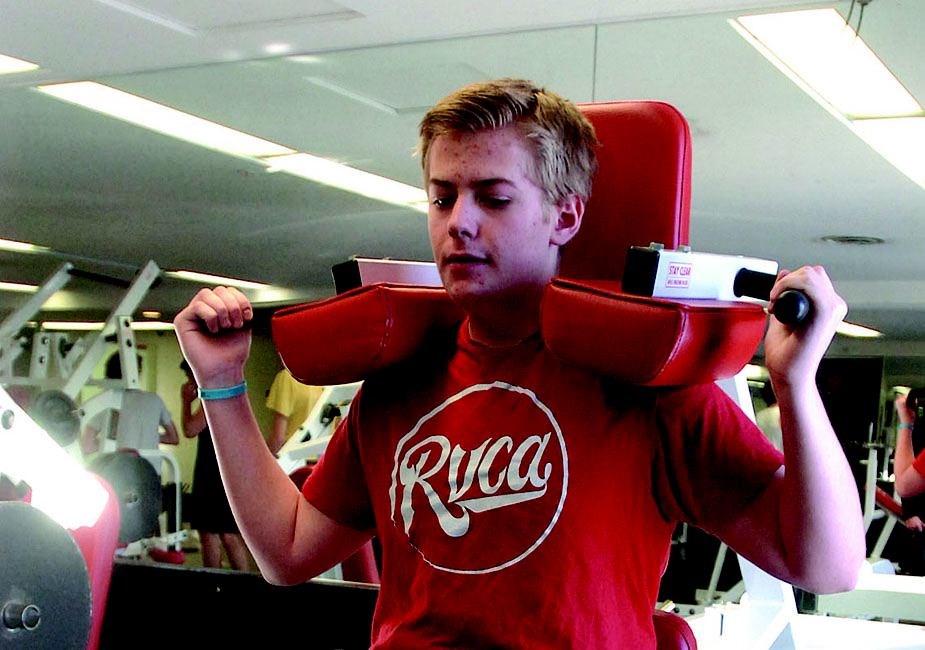When Marius Woelki made the decision he wanted to get into better shape he knew he needed a combination of a good diet, an appropriate exercise regime and positive reinforcement.
The 15-year-old student at Prince George Secondary School came to the realization three years ago that he wanted to change his appearance. Since this summer, Woelki said he's lost 20 pounds.
"I just didn't really like the way that I looked physically," he said. "I've lost lots of weight, mostly fat, and I've gained lots of muscle."
Woelki's balanced formula for success differs dramatically from the weight loss strategies depicted on television's The Biggest Loser. The long-running reality TV show encourages participants to lose dramatic amounts of weight by exercising to the point of exhaustion.
"The Biggest Loser is entertainment and unfortunately sometimes we like the spectacle effect," YMCA of Northern BC co-ordinator of fitness programs Shannon Johnson said. "We want to see people struggling and in a lot of cases they're overcoming their obstacles - so that feels really good - but whether that has a lasting effect, whether they can maintain it for a long period of time, I'm not sure."
Johnson said the Biggest Loser has the benefit of raising the profile of fitness, but she said the methods used on the program shouldn't be replicated due to the risk of injury.
"As a certified fitness leader, there's no way I could train people like that," she said, noting it appears the program wouldn't meet the standards set out by the Canadian Society for Exercise Physiologists.
For people who want to lose a large amount of weight, Johnson said a more gradual approach is required.
"We'd have to look at something more progressive, slow in nature," she said.
Woelki's fitness regime wasn't inspired by the television show, but he also had the added benefit of being the son of a personal trainer - his mother Heidi works at the YMCA. Included in his program is 40 minutes of cardio five times a week in addition to weight work.
Woelki said his family eats a clean diet - a typical day would include oatmeal and protein shake at breakfast, a sandwich and fruit at lunch, a protein shake following an afternoon workout and meat and salad at dinner.
"We have a cheat meal once a week," he added. "It's where you get to eat one meal of junk food a week."
Northern Health population health dietitian Flo Sheppard said diet is important and encouraged people to focus on the basics - eating regularly and making sure each meal has at least three food groups included.
Sheppard said often there's too much of a focus on calories and fat, rather than the overall benefits of certain foods.
"We need to have fat, that fat is important, we just want to choose quality fat if we can," she said.
Among Sheppard's concerns about the Biggest Loser are people taking on too much intensity in exercising and the emphasis on weight rather than overall health.
"One of the pet peeves of many dietitians and something I see on the Biggest Loser on the few shows I've seen, is so often exercise is seen as part of a mathematical equation," she said. "You eat this and you exercise to subtract those calories. As a dietitian first and foremost we start with are we nourishing ourselves?"
Some community groups have invited Northern Health to participate in Biggest Loser type events, but the health authority has declined to take part because of the focus on weight rather than overall health.
"Why could we not challenge one another to eat local? Or try to have a vegetable with every meal? Or eat together with your family?" Sheppard said. "We know that those things are linked to healthy behaviour and healthy eating."
Since he started getting serious about fitness, Woelki said he's not only happy with how he looks, it's improved his entire outlook.
"I feel better about myself after I go to the gym, than I would if I was sitting home playing X-Box or watching TV," he said.
In order to be successful in meeting fitness goals, Johnson said it's important to be consistent, to have supportive people around you and to tell others about your quest in order to stay accountable. She also stressed the importance of consulting with a physician first to make sure there are no medical concerns.
"If it took them a bit of time to gain weight, it's going to take a little bit of time to lose it," she said. "The secret is to see yourself already there. If it's going to take two years to get where you want to be, just always keep that in mind and keep the possibility open."



